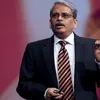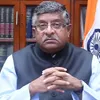How everyone can play a role in defining the future of AI and robotics
Speaking at the Bengaluru Tech Summit 2020, experts said that collaboration between academia and industry is very important for creating futuristic AI and robotics innovations, and India can have the ‘best mover’ advantage.
After binge-watching sci-fi movies, one might imagine the future with robots and artificial intelligence crawling into all aspects of our lives. But how do we really get to the futuristic innovation, and how India can be in the spotlight? Experts are of the opinion that though India may not have a first mover advantage, it can definitely have a ‘best mover’ advantage in AI and robotics in the near future.
“India is among the top three countries in the world to produce engineers. In one of its research, Stanford has also put India in the top two countries which can create an impact in the digital economy. We have a lot of ingredients which can use to cook something transformative and magical,” said Jeyandran Venugopal, Chief Product and Technology Officer, Flipkart in a virtual panel at Bengaluru Tech Summit 2020.
The panel was chaired by other visionaries such as Bharadwaj Amrutur, Research Head, Director AI and Robotics Technology Park (ARTPARK) Chair, RBCCP/IISc; Vishal Dhupar, Managing Director, South Asia, NVIDIA; and Helene Niklasson, Head, CampX Volvo, Sweden. The panel was moderated by Umakant Soni, Co-founder and CEO, ARTPARK.

The panelists shared how AI has been a focus in their sphere of work. Helen emphasised that Volvo has clear sustainability goals and it sees robotics, automation, AI, and digitalisation as important means to get there. The panelists discussed in detail about how AI will shape commerce, education, medicine, and manufacturing, and how human efforts will shift to new platforms in the future. They agreed that partnerships and collaborations are the key to really disrupt AI and robotics from India.
Sharing a few use cases of how Flipkart uses AI and its users play a role in making the process effective, Jeyandran said that everyone plays a role in scaling up AI and collaboration. He even reminded that India skipped a few generations when it comes to technology, and has a potential to show the same in this segment of tech as well.
Echoing the same, Umakant said that the road to AI and robotics will require a collaboration among companies, governments, academia and others, and that India needs to learn from countries like Sweden in terms of collaboration. He also shared that ART Park is working on several projects and processes especially on the language side.
However, there remains some challenges such as policies, projects, etc on which Bharadwaj said that India needs to have a few moonshot projects. There is a constant need for a bold approach which the government is taking by funding and seeding all these innovation hubs. He also highlighted that the modern AI revolution is built on data but we still have a long way to go in terms of how data will be used and for what purpose.
Sharing areas of collaboration, Jeyandran said that companies such as Flipkart is always open for opportunities and it seeks for collaboration in robotics for its logistics network, which is extremely complex when it comes to trying to manage a couple of million shipments that it sends out every day.
He added that there are substantial opportunities for AI computer vision and robotics-driven automation, language technologies, voice technologies and personalisation. Helen revealed that Volvo is soon opening up a campaign around AI and robotics in Bengaluru, and is looking to collaborate with the startup community for the same.

NVIDIA's Vishal said that the IT infrastructure of our nation has always had a paucity of infrastructure, and we can't afford to do anything without the infrastructure. So we need to innovatively collaborate how we can create our infrastructure.
Vishal simply puts that the future of AI and robotics is all about the convergence of tech In the larger context, and it is disrupting everything around us. “It's about digital transformation, and software-defined and data-driven approaches are the two principle foundations that will define how one will use AI,” he said.
Edited by Kanishk Singh









